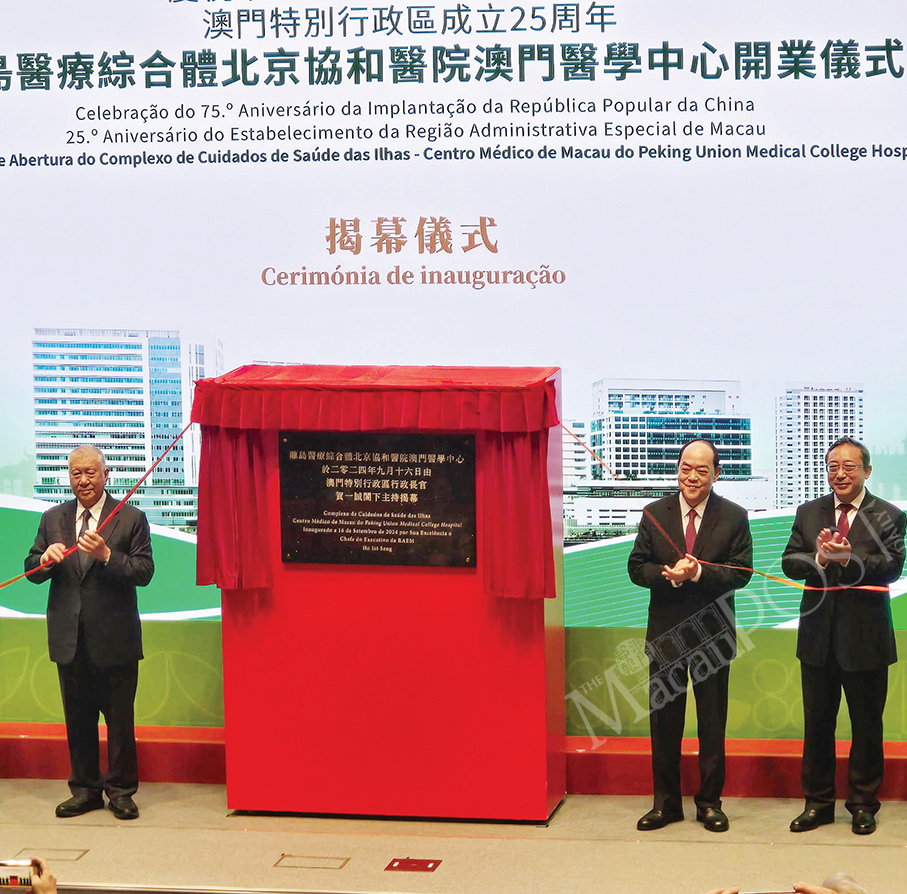Considering that China and Africa account for around one-third of the world population, “without our modernisation, there will be no global modernisation,” President Xi Jinping underlined in his keynote address* at the opening ceremony of the 2024 Summit of the Forum on China-Africa Cooperation (FOCAC) in Beijing last week.
Nobody in their right mind would disagree with Xi, who also stressed that “the friendship between China and Africa transcends time and space, surmounts mountains and oceans, and passes down through generations”.
Sino-African ties date back to Chinese Admiral Zheng He’s famous voyages between 1405 and 1433 when his legendary fleet visited the eastern African coast, including present-day Kenya and Tanzania. Unlike the West’s maritime expansion between the late century and 17th century, China did not engage in conquest, occupation, exploitation and colonisation in Africa, a process that culminated in the mid-19th century in Europe’s nefarious “Rape of Africa”, euphemistically also known as “Scramble for Africa”, driven by the Second Industrial Revolution, after which only Liberia (founded by former African slaves from the United States) and Ethiopia, evaded colonial occupation (and even Ethiopia, then still known as Abyssinia, was finally invaded by fascist Italy in the 1930s).
Following the establishment of the People’s Republic of China (PRC) in 1949, relations between the New China and Africa, gradually strengthened, also because Beijing principled support African liberation movements’ struggle to unchain their countries from Europe’s colonial shackles, a process that finally ended in 1977 only when France granted Djibouti independent statehood.
One of the historic highlights of China’s determination to support Africa nation’s independence and development was the 1,860km Uhuru Railway (“uhuru” means “freedom” in Swahili) between Tanzania and Zambia (therefore also known as TAZARA Railway), a turnkey project financed and involving scores of Chinese engineers and workers between 1970 and 1975, much to the derision of the West that badmouthed it as a “bamboo railway”. The railway remains an enduring symbol of cooperation and solidarity between China and Africa – and elsewhere in the Global South.
I opted for this digression from the main topic of this editorial as without at least a basic knowledge of history it is impossible to understand the present state of China-Africa relations and its outlook for the future.
Xi also said in his speech at the Great Hall of the People that the founding of the forum in 2000 was a milestone in the history of China-Africa relations, pointing out that “thanks to nearly 70 years of tireless efforts from both sides, the China-Africa relationship is now at its best in history.” He also proposed that the bilateral ties between China and all African countries having diplomatic ties with China be elevated to the level of strategic relations, “and that the overall characterisation of China-African relations be elevated to an all-weather China-Africa community with a shared future for the new era.”
Eswatini, formerly known as Swaziland, a landlocked kingdom in southern Africa, was the only one of Africa’s 54 internationally recognised nations that failed to attend last week’s three-day FOCAC summit in Beijing, as it continues to maintain “diplomatic” ties with Taipei.
On the sidelines of the triennial summit, Xi met separately with 25 heads of state from Africa.
In his speech, Xi said that “modernisation is an inalienable right of all countries. But the Western approach to it has inflicted immense sufferings on developing countries”.
10 partnership actions for modernisation
Xi also proposed six points to jointly advance the world’s modernisation drive, in China and Africa in particular: modernisation that is just and equitable; that is open and win-win; that puts the people first; that features diversity and inclusiveness; that is eco-friendly; and that is underpinned by peace and security.”
Considering that the 2.8 billion people of China and Africa account for 36 percent of the world’s eight-billion population, Xi pledged that “China will work with Africa over the next three years to take the following 10 partnership actions for modernisation to deepen China-Africa cooperation and spearhead the Global South modernisation drive: mutual learning among civilisations; trade prosperity, such as China’s unilateral decision to give all least developed countries (LDCs) having diplomatic relations with China, including 33 countries in Africa, “zero-tariff treatment for 100 percent tariff lines”, which “will help turn China’s big market into Africa’s big opportunity”; industrial chain cooperation; connectivity, including 30 infrastructure connectivity projects in Africa and a China-Africa network featuring land-sea links and coordinated development; development cooperation, including 1,000 “small and beautiful” livelihood projects; health, including sending 2,000 medical personnel to Africa; agriculture and livelihoods, including the provision of 1 billion yuan in emergency food assistance; people-to-people exchanges, including the setting-up of the China-Africa Cultural Silk Programme; green development, including the launch of 30 clean energy projects in Africa; and common security within China’s Global Security Initiative (GSI) cooperation programme.
Xi also said that the Chinese government will provide Africa with 360 billion yuan in financial support over the next three years, consisting of 210 billion yuan of credit line, 80 billion yuan of assistance in various forms, and at least 70 billion yuan in investment in Africa by Chinese companies.
Xi concluded Thursday’s speech by pointing that “as an African proverb goes, a friend is someone you share the path with,” and he was adamant that “on the path to modernisation, no one, and no country, should be left behind…, let us promote modernisation of the Global South with China-Africa modernisation… [and] let us join hands to bring about a bright future of peace, prosperity and progress of our world.”
Addressing a press conference during the summit, Foreign Minister Wang Yi proposed three principles for the international community when cooperating with Africa: China expects all countries engaged in cooperation with Africa to uphold justice; achieving modernisation is not a privilege exclusive to a few countries, and African nations also have the right to development; it is imperative to be attentive to Africa’s voices and respect African people’s aspiration to explore their own development paths.
Wang made the remarks in the presence of his counterparts from Senegal and the Republic of the Congo, Yacine Fall and Jean-Claude Gakosso.
I am sure both African ministers couldn’t agree more.
The 9th FOCAC summit on Friday adopted by consensus the Beijing Declaration on Jointly Building an All-Weather China-Africa Community with a Shared Future for the New Era.**
In their joint declaration, China, 53 African countries and the African Union (AU) Commission vowed to foster synergy between high-quality Belt and Road (B&R) cooperation nd he Goals of Agenda 2063 of the AU nd he UN 2030 Agenda or Sustainable Development.
The summit also decided that the 10th FOCAC Ministerial Conference will be held in the Republic of the Congo in 2027.
‘Ubuntu’ and ‘ren’ as unifying factors
Having read intensively about the development of Sino-Africa relations since my university years back in the 1970s, I am convinced that there are philosophical similarities between China and Africa that facilitate mutual understanding between the two sides. China’s Confucian concept of “ren”, i.e., the importance of relationships, benevolence, kindheartedness and humanity, and Africa’s concept of “ubuntu”, i.e., the importance of relationships, compassion, and individuals’ well-being depending on the well-being of others are strikingly similar in their approach towards what humanity is supposed to be all about.
Both concepts emphasise the central value of community, interconnectedness, social responsibility, moral integrity, and empathy.
I find ubuntu’s idea that “I am because we are” particularly in line with my own world view. I regard both concepts are unifying factors in the China-Africa relationship.
I also think that the growing impact of wokeism on Western politics will further alienate the West from the Global South – including China and Africa.
The summit in Beijing also had a Macau connection, considering that six of the participating countries – Angola, Mozambique, Guinea-Bissau, Equatorial Guinea, São Tomé and Príncipe, and Cabo Verde (Cape Verde) are members of the 10-nation Macau-based Forum for Economic and Trade Cooperation between China and Portuguese-speaking countries (Forum Macao). Africa’s six countries with Portuguese as an official language have a combined population of 76 million, 37 million and 34 million of them in Angola and Mozambique, respectively. The sextet account for about one-quarter of the about 290 million inhabitants of the world’s nine Portuguese-speaking countries, which also include South American powerhouse Brazil (203 million inhabitants), Portugal, and Timor-Leste (East Timor).
Incidentally, Admiral Zheng He is said to have visited Timor during his seven voyages in the early 15th century. The eastern half of Timor was later colonised by Portugal.
While China is Africa’s top trading partner, Angola is one of China’s main business partners in Africa.
I believe that Forum Macao should play a more prominent role in fostering economic, commercial and even cultural relations between China and Africa’s six Portuguese-speaking countries, such as organising more two-way business-promotion trips and holding more training courses between the two sides, in Macau or elsewhere.
While Chinese culture is deeply rooted in Macau, it is also a multicultural society traditionally open to foreigners (like myself), and I believe that our public and private universities are able to offer the right learning environment for African students to study and even pursue their academic careers here. Macau – including the Guangdong-Macau In-depth Cooperation Zone – should also try to attract more scholars, investors, businesspeople and creatives from Africa’s Portuguese-speaking countries to work here. This would certainly benefit both Africa and China and further elevate Macau’s status as a platform for various types of relations between China and Portuguese-speaking countries.
– Harald Brüning
*https://www.macaupostdaily.com/news/22613
**https://www.macaupostdaily.com/news/22612








